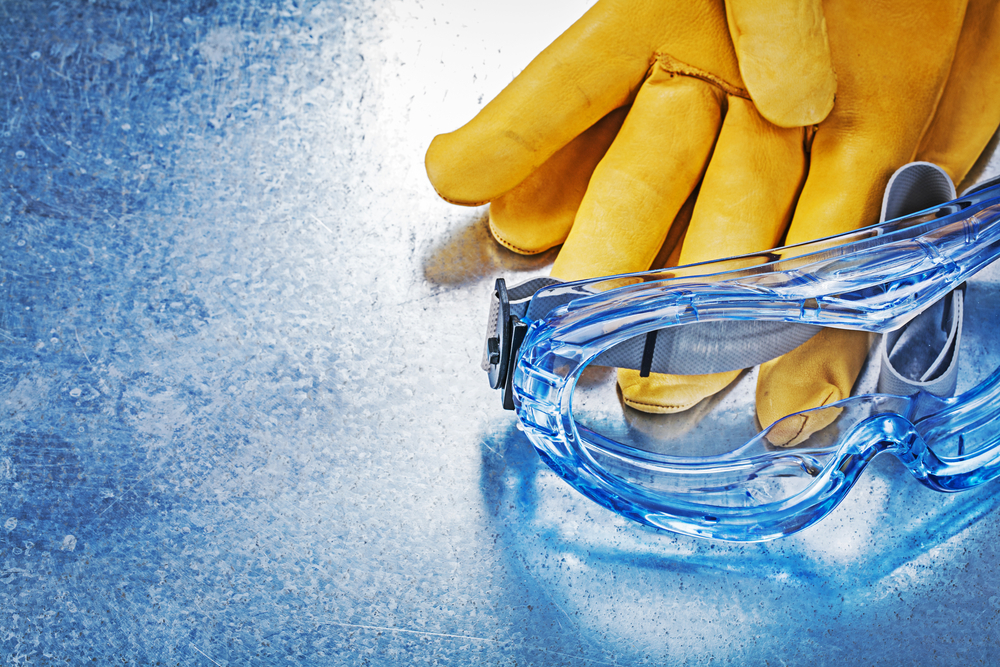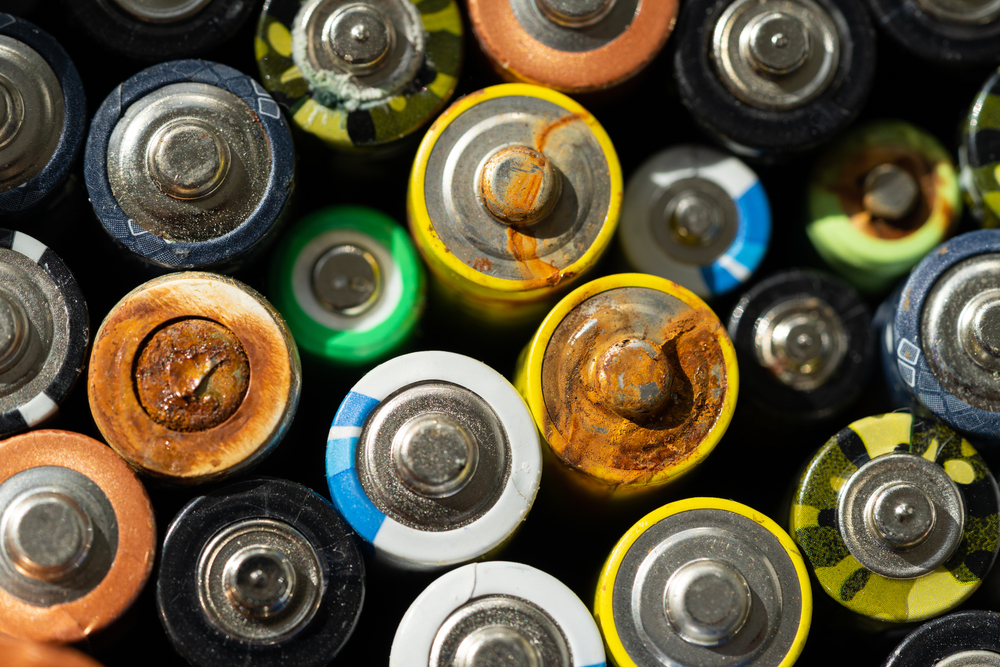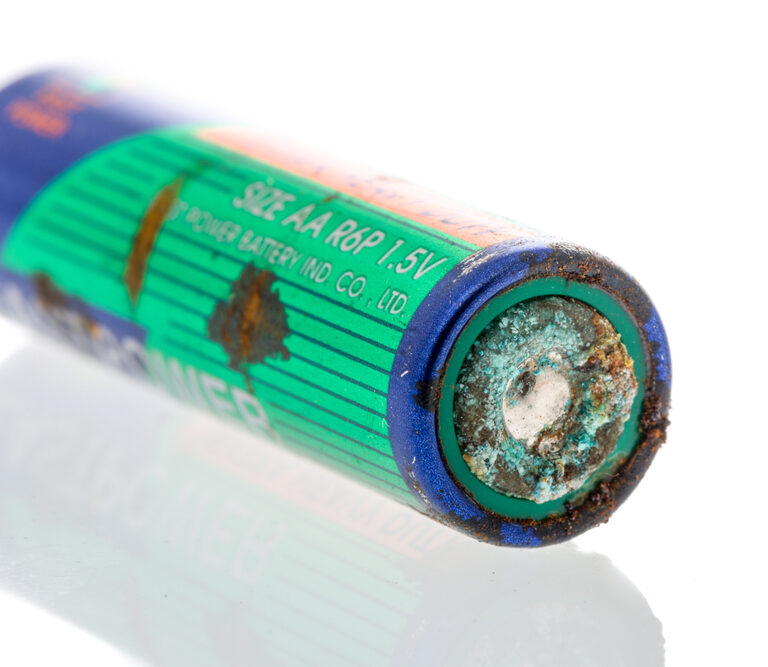If you’ve had a battery burst and leak corrosive acid everywhere, you’re going to want to clean it up quick smart. But don’t be too hasty because battery acid is nasty stuff—the last thing you want is to get it on your skin or in your eyes.
With a bit of technical know-how, the good news is cleaning battery corrosion is a fast and hassle-free affair. In this guide, we’ll run you through the process step-by-step and throw you a few pointers on how to better care for your batteries in the future.
Alkaline Versus Acidic: The Low-Down on Battery Corrosion
Battery corrosion occurs when acid leaks from a battery, causing it to malfunction and corrode anything in its path. The phenomenon frequently affects old batteries past their use-by-date and those exposed to extreme heat or cold.
The leakage is a highly corrosive material that will burn your skin, degrade your devices, and contaminate our waterways and soil; it’s best treated with utmost care.
When household batteries corrode, the leakage isn’t actually acidic, despite the fact it’s commonly referred to as “battery acid.” Rather, it’s alkaline, as it’s composed of potassium hydroxide.
On the other hand, lead batteries, commonly used in automobiles and other heavy-duty machines, leak sulfuric acid, a hazardous substance that must be approached with utmost care.
To clarify, in this guide, we’ll be discussing how to clean standard alkaline household batteries. Don’t follow these steps if you’re trying to clean leakage from a car battery.
The Essential Safety Gear

Before you get to work on cleaning the corrosion from your batteries, you need to gather the appropriate P.P.E. Even though household batteries aren’t anywhere near as dangerous as lead car batteries, a corrosive leak can still cause you plenty of harm.
Because the leakage from an alkaline battery is caustic, touching it will burn your skin. Worse, accidentally rubbing it in your eyes could make you blind.
Gather the following PPE:
What You Need
Cleaning battery corrosion doesn’t require any special equipment; you probably already have the right gear somewhere in your home. If not, you’ll find what you need at the supermarket or online.
- Q-tips (A.K.A cotton swabs) or an old toothbrush
- Vinegar or lemon juice
How to Clean Battery Corrosion
Follow these four simple steps to clean corrosion from an alkaline battery.
1. Prepare a Safe Workspace
Find a flat area such as the kitchen table and lay down a bunch of old newspapers to avoid getting nasty battery leakage on the surface.
Pop on your rubber gloves and goggles before you begin.
2. Apply an Acidic Liquid to the Affected Area
As we know, the leakage from a household battery is alkaline rather than acidic. Therefore, the best way to neutralize the mess is by applying an acidic liquid to the affected area.
White vinegar and lemon juice are the two most common acidic household liquids, and both work a treat at neutralizing battery corrosion.
Wait a few minutes for your acid of choice to work its magic on the leakage.
3. Wipe Away the Corrosion
Dip a Q-tip or toothbrush into your acidic solution and gently wipe away at the affected area. The aim is to carefully scrub off the white crystalline residue without letting it get into contact with your skin.
If the battery leaked while inside an electronic device, you’ll need to clean the battery compartment with an acid-soaked Q-tip or toothbrush. If the battery leaked in a drawer, follow the same method to clear up any spillage.
When the affected area stops fizzing, the leakage has been neutralized. Carefully dry the area with a paper towel or newspaper using some isopropyl alcohol if you have it.
4. Scrap off Any Stubborn Spots
If you can’t quite get rid of all the corrosion with your Q-tip, try using a toothpick to pry it away. You could use a file to remove stubborn corrosion inside a battery compartment or the bottom of the drawer.
There will likely be some leakage on the metal contact points in the battery compartment of your device. Slowly scrape or pry the residue away, being careful not to scratch or snap them. It may help to polish the contact points with a pencil eraser to restore function.
Although it’s possible to clean a battery leak within an electronic device and return it to good working order, there’s no guarantee the process will work. The corrosive nature of a battery leak could irreversibly damage the connecting points on the device. Of course, the best course of action is to prevent a battery leak from occurring in the first place.
How to Dispose of the Corroded Batteries
A corroded battery will no longer work and is unsafe to handle, so you’ll need to get rid of it. The correct place to dispose of a corroded battery depends on where you live.
It’s legal to throw an old, flat, or corroded battery in the trash in some municipalities. However, in other counties and states, the law mandates batteries must be disposed of in an approved recycling center.
If you’re unsure, check the website of your local sanitation department.
How to Prevent Batteries From Leaking

With proper care, you can prevent your alkaline batteries from leaking in the first place. Consider the following tips:
- Dispose of batteries once they reach the manufacturer’s stated use-by-date
- Don’t expose batteries to extreme heat or cold (room temperature is ideal)
- Don’t mix and match batteries. Replace all batteries in a device simultaneously rather than one at a time. Avoid using batteries from different brands.
- If you’re planning to leave an electronic device in storage for an extended period, take out the batteries first. That way, if they grow old and corrode, at least they won’t leak inside your device.
- Don’t store your batteries in the fridge. Cold temperatures will reduce a battery’s lifespan rather than prolong it
How to Clean Battery Corrosion: Final Thoughts
A battery leak is bad news, and you need to take care when cleaning it to avoid getting the corrosive stuff on your skin. By following the correct procedure, as we’ve shown you in this guide, you’ll be able to clean up the spill safely and with minimal fuss.
Prevention is better than cure, as the adage goes. Take better care of your batteries in the future to avoid having to deal with a toxic mess again.
